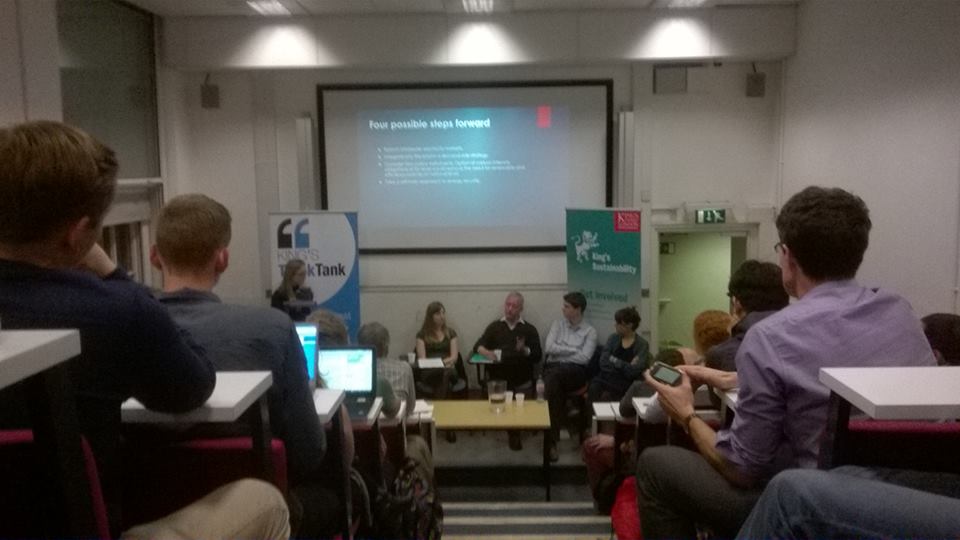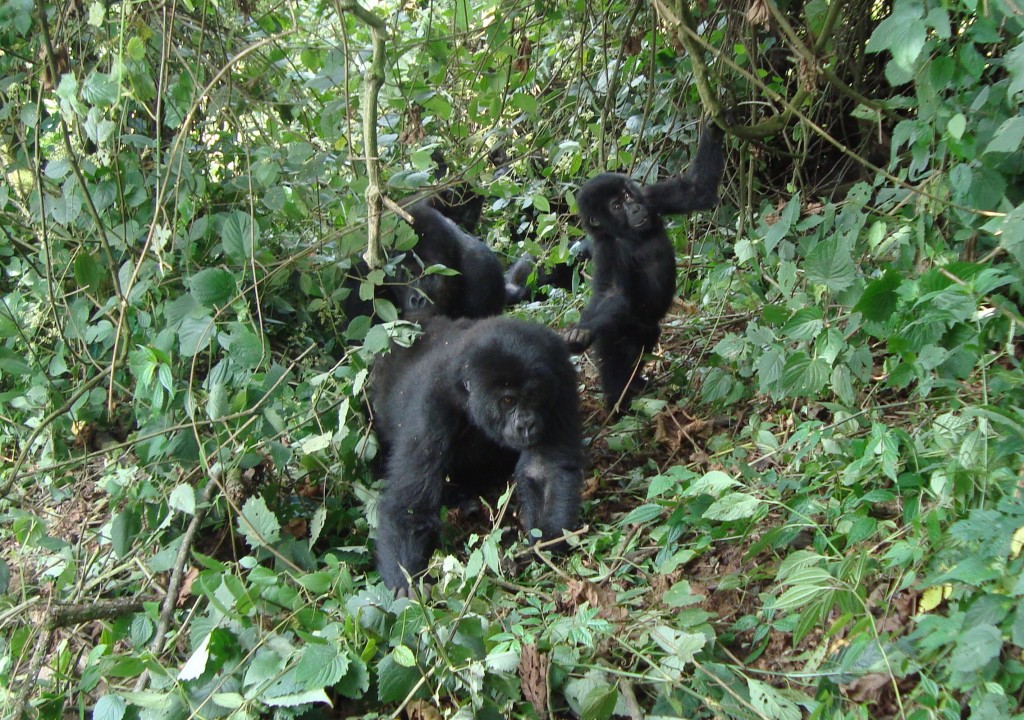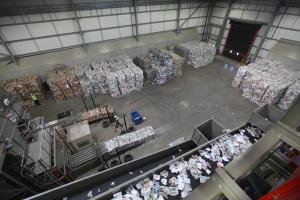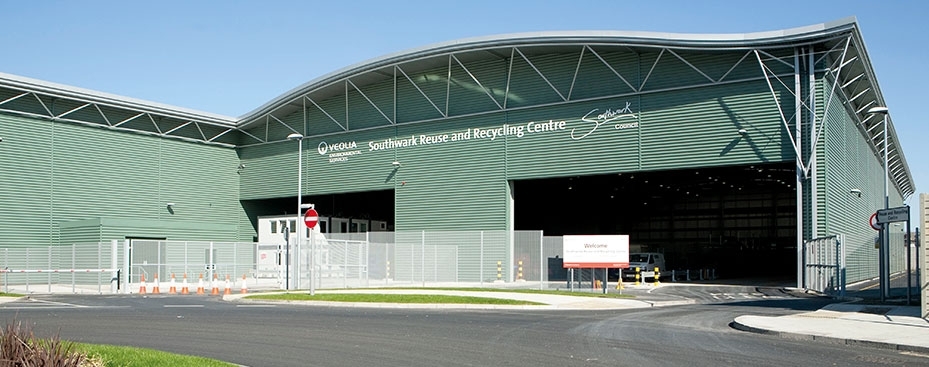King’s Sustainability collaborated with King’s Think Tank to lead a panel discussion into a future of changing energy supplies within Europe, and how European energy demands can be met without the use of environmentally harmful fossil fuels.
To help us answer this, four guest speakers were invited to present their views on the topic. This included:
• Malcolm Keay from the Oxford Institute of Energy Studies.
(Malcolm has worked in both the public, private and non-profit sector. He has also been special advisor to the House of Lords Committee Inquiry into Energy Security in Europe and Director of the Energy and Climate Change Study for the World Energy Council).
• Jonathan Church is an Environmental Lawyer at ClientEarth.
(Jonathan specialises in climate and energy legislation, with a particular focus on the UK Climate Change Act. Prior to this Jonathan worked in research and campaigning roles for an EU-related NGO).
• Catherine Early is Deputy Editor of the Environmentalist.
(Catherine has specialised in energy and environmental journalism since 2003, where she has written for Environment Business, Real Power and the Guardian).
• Danielle Paffard is a Divestment Campaigner at 350.org.
(Danielle has helped start up highly influential campaigns such as UK Uncut, Move Your Money and No Dash for Gas, in a bid against fossil fuel sponsorship).
Each of the four speakers brought their own contrasting view to the topics, giving their own views on the topic before opening the floor to audience questions. Jonathan focused on the use of legislation as a tool for energy security, and Malcolm into possible energy policies looking to the future. Catherine presented an array of media perceptions on energy supplies, blaming the media for often contorting perceptions of an energy ‘crisis’ when this is not always the case. Danielle, unsurprisingly, used the debate to highlight the necessity to divest from non-renewable sources of energy generation and encouraged students to join the King’s Fossil Free movement. The myriad of opinions from the four speakers offers an important reminder of the complexity and diversity of energy security issues within Europe.
We are currently looking to hold similar events in Green Week next February (8th – 12th). If you, or your societies have any thoughts on events like these (or completely different), please do get in touch at sustainability@kcl.ac.uk and we would be more than happy to try and help facilitate your ideas.
Rhianne Menzies, Sustainability Projects Assistant












 ithin Fit for King’s there are multiple ways in which it links to sustainability. Firstly each team (Estates teams for example Capital House or Guy’s estates team), produce a termly plan which address PPP: people, processes and premises. Each team come up with one thing that they are going to do in order to improve each of these Ps. Last term, Guy’s Estates work on premises saw the addition of the new recycle bins within Guy’s Quad. This term, Capital House team are looking at removing all under desk bins and improving signage for recycling.
ithin Fit for King’s there are multiple ways in which it links to sustainability. Firstly each team (Estates teams for example Capital House or Guy’s estates team), produce a termly plan which address PPP: people, processes and premises. Each team come up with one thing that they are going to do in order to improve each of these Ps. Last term, Guy’s Estates work on premises saw the addition of the new recycle bins within Guy’s Quad. This term, Capital House team are looking at removing all under desk bins and improving signage for recycling.

